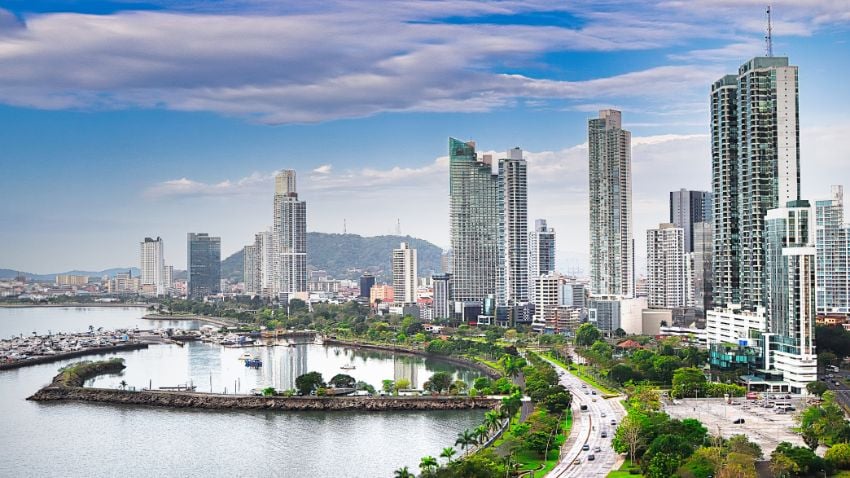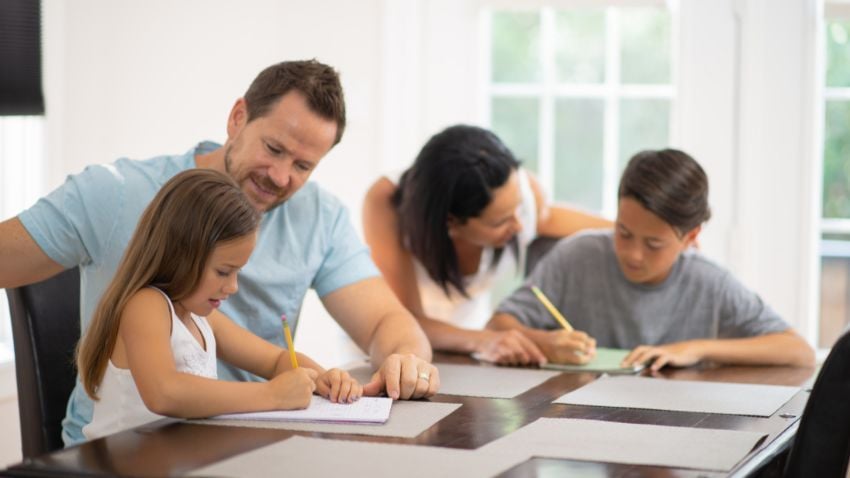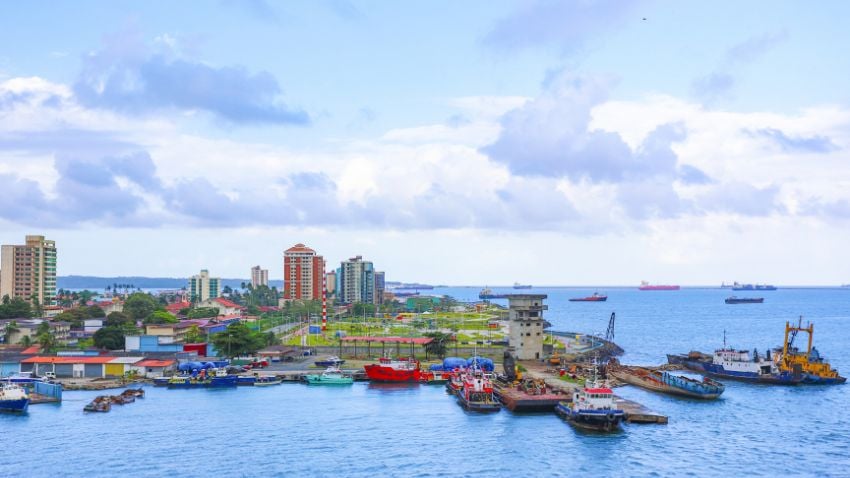How Safe Is Costa Rica?
Costa Rica has become one of the most popular expat and digital nomad destinations in Latin America, known for its natural beauty, relaxed lifestyle,...

5 min read
Education is no longer confined to the four walls of a classroom. The internet and recent events have woken up multiple parents, realizing that traditional education is lacking and even detrimental to their children.
The concept of homeschooling goes beyond attending lectures, offering a customized approach that resonates with families seeking a unique educational journey. Since schools’ curriculums are often outdated and even ideologized, the interest in alternative options has emerged globally.
In this article, we’re delving into one of the most homeschooling-friendly countries in the world: Panama.

More and more families are opting to homeschool their children
Panama has quickly embraced the homeschooling movement that’s reshaping global education. In this lush Central American country, families are weaving a tapestry of educational experiences that cater to their children’s unique learning needs and the families’ preferences. While precise figures may vary, a growing number of families are embracing this approach.
Families are challenging the conventional education system by taking learning into their own hands. They realize that education is not a one-size-fits-all garment; it’s a canvas where each child’s potential can flourish.
As the sun-kissed beaches of Panama serve as a backdrop, parents here, like many others across the globe, have diverse reasons for choosing homeschooling. Some seek refuge in the harbour of individualized learning, recognizing that traditional schools may struggle to accommodate their child’s unique talents or learning pace. Others find solace in integrating their religious and philosophical values into their children's education.
What's more, safety concerns come across the minds of conscious parents. Bullying, indoctrination and cancel culture make them choose homeschooling as a haven where guarding their children’s physical, intellectual and emotional well-being is possible. Panama’s landscapes and vibrant communities offer an inspiring scenery, where the old wisdom of “it takes a village” meets the modern reality of self-guided education.
Related content: Why Did I Move To Panama With My Family?

Panama City
In Panama’s former educational arena, the legal spotlight didn’t really shine on homeschooling. There was no straightforward regulation that made it completely legal or illegal, but things have changed a lot for the good since 2021.
The country’s constitution recognizes education as a fundamental right, and its lawmakers finally acknowledged the necessity of adapting to evolving paradigms. The Home Education program seeks to harmonize parental aspirations and children’s rights by granting families the freedom to educate within the walls of their homes. This legal framework validates the organic growth of learning, nurtured by parents’ hands.
Let’s delve into Panama’s “Home Education” program, introduced through legislative measures. This program has the clear mission of providing families with the option to educate their children within the walls of their own homes. It’s based on the notion of education as a fundamental right and parental involvement in the educational process. In particular, this law is supported by the Constitution of Panama and specific articles within the Organic Regulations of the National Assembly.
This program reflects a huge step toward increased educational freedom, giving families the power and autonomy to shape their children’s learning experiences at home.

Each child is unique, so the approach to educating them must be customized, which is not possible in the traditional system that does not take into account the individual needs of each child
The driving force behind this law is rooted in the recent lockdowns and recognizing education as a fundamental right accessible to all. The motivation stems from the belief that education should adapt to the evolving needs of society. As laid out in the program, home-based learning offers an alternative to traditional homeschooling. It acknowledges the changing dynamics of the modern world and aims to accommodate those seeking a different, more customized approach.
The Home Education program is designed to accommodate a range of educational philosophies, methods, and individual learning paces, making it a versatile approach that celebrates the richness of each student’s educational journey.
Homeschooling is certainly an excellent way to educate your children the way you want, but this alternative path comes with its share of challenges and concerns. One of the primary worries is socialization. Parents might wonder if their children will miss out on the social interaction that traditional schools provide.
In addition, there could be concerns about the availability of resources. Finding appropriate curricula, textbooks, and learning materials requires much research. Also, there’s the potential for isolation for kids and parents. Families fear becoming disconnected from the larger educational community without the bustling school environment.

Garden in Boquete, Panama
Homeschooling families in Panama have formed a tight-knit community where local support groups offer a haven to connect with each other. They share experiences and seek advice. These communities provide emotional support and practical insights into navigating the exciting yet challenging homeschooling journey.
Online platforms and forums create virtual spaces where parents can ask questions, exchange ideas and access a wealth of educational resources. Educational materials, from curricula to textbooks, are readily available. In addition, co-curricular activities like art classes, sports teams, and workshops ensure that children have a well-rounded education beyond academics.
Related content: The Top Four Visas For Moving To Panama
Choosing between homeschooling and traditional schooling is a significant decision. Traditional schooling might offer a more structured learning environment and social interaction, but these days, many parents know that what schools teach to their children is not in their best interest. On the other hand, homeschooling provides flexibility, personalized attention, and a tailored curriculum. Considerations like your child’s learning style, family values and the available resources play a crucial role in this decision.

Establishing a routine and goals for each day are essential in organizing good homeschooling and will also bring order to the family
The journey continues beyond picking the best homeschooling program and keeping your kid out of the reach of the school system. To ensure a remarkable homeschooling experience for your child, consider these practical recommendations that I've found effective with my children, enhancing the effectiveness and enjoyment of homeschooling:
Designate a specific area within your home as a dedicated learning space, ensuring it remains well-organized and free from distractions;
Establish a daily routine and define clear expectations for learning periods. Foster self-discipline and time management skills by avoiding interruptions and allocating separate time for study and leisure;
Utilize local libraries, museums, educational websites, and online learning platforms to complement your curriculum;
Regularly evaluate your child's progress through assignments, assessments, and portfolios. Monitor achievements and identify areas for improvement, as education inspectors might assess your child’s knowledge;
Foster social interactions and engagement by connecting with online homeschooling communities and cooperative groups, embarking on field trips, and participating in extracurricular activities.
This is precisely why education expert Michael Strong and I established the Expat International School of Freedom and Entrepreneurship. Driven by the vision of creating an education system we wish we had, we've devised an educational strategy to offer expat parents the flexibility and community that traditional schooling may lack. If this resonates with you, I invite you to schedule a conversation with us to determine if it fits your needs.

Colon, Panama, Atlantic Entrance to Panama Canal
In conclusion, Panama is a beacon of homeschooling friendliness, offering families an ideal environment to nurture their children's education. The country's swift embrace of the homeschooling movement, reflected in the proposed "Home Education" program, showcases its commitment to giving parents the autonomy to shape their children's educational journeys. From its lush landscapes to vibrant communities, Panama provides the backdrop for a unique blend of personalized learning and cultural exploration. As families tread the path of homeschooling, they find themselves not just on an educational journey but a transformative adventure that exemplifies the fusion of tradition and innovation, making Panama a true haven for those seeking educational autonomy.
If you want the best intel from the expat world, including profitable offshore opportunities, little-known tax-saving strategies, and hard-won insights on immigration, passports, and Plan-B residencies, all delivered to your inbox every single week, then join our daily correspondence, EMS Pulse®. Currently enjoyed by over 84,000 expats and expat-hopefuls worldwide. Fill in the form below to join our newsletter free:

Written by Mikkel Thorup
Mikkel Thorup is the world’s most sought-after expat consultant. He focuses on helping high-net-worth private clients to legally mitigate tax liabilities, obtain a second residency and citizenship, and assemble a portfolio of foreign investments including international real estate, timber plantations, agricultural land and other hard-money tangible assets. Mikkel is the Founder and CEO at Expat Money®, a private consulting firm started in 2017. He hosts the popular weekly podcast, the Expat Money Show, and wrote the definitive #1-Best Selling book Expat Secrets - How To Pay Zero Taxes, Live Overseas And Make Giant Piles Of Money, and his second book: Expats Guide On Moving To Mexico.

Costa Rica has become one of the most popular expat and digital nomad destinations in Latin America, known for its natural beauty, relaxed lifestyle,...

Mexico remains one of Latin America’s most compelling destinations, especially for North Americans. More than a million expats call it home, and tens...

South Korea is far more than K-pop and K-dramas. It is a country known for outstanding food, from bustling street markets to high-end dining, as well...